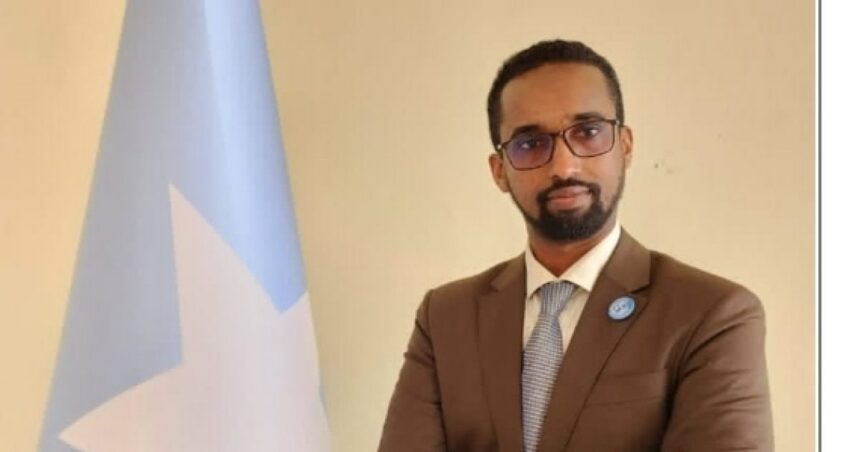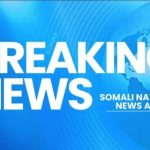Today, July 1, marks 63 years since we attained independence and as we commemorate this momentous occasion, we need to reflect on our story of resilience, progress, and indomitable spirit, amidst relentless adversities. Our history, replete with trials and tribulations since our emancipation from colonial rule in 1960, exemplifies our courage and resolve. Our journey is not unlike that of other nations rising from fragility and conflicts, offering invaluable global lessons in resilience, growth, and reconciliation.
Today, I find myself inspired by the words of Thomas Paine, “The harder the conflict, the more glorious the triumph. What we obtain too cheap, we esteem too lightly; ’tis dearness only that gives everything its value. I love the man who can smile in trouble, gather strength from distress, and grow brave by reflection’’. Our struggles as a country embody the broader African narrative of liberation from colonial rule and the ensuing aspirations for national growth.
Indeed, like numerous nations riding the wave of decolonization, we’ve faced setbacks and growing pains, but our spirit remains unbroken. Transitioning to our cultural heritage and preserving our language and oral traditions has stood as a testament to our cultural resilience since independence, much like Ireland’s commitment to Gaeilge and New Zealand’s efforts to revitalize Te Reo Maori.
Today, let us renew our commitment to safeguarding these rich traditions for future generations. However, the threats our heritage — embodied in historical sites and artifacts from the ancient Land of Punt to the Geledi Sultanate — faces cannot be overlooked. The protracted civil war, environmental calamities, and inadequate preservation funding are pressing concerns. Taking inspiration from the conservation efforts of Italy and Greece, we are called to protect and promote our rich heritage, which reinforces our national identity and supports state reconstruction endeavors.
Let us honor the significant contributions of our diaspora, parallel to those of Indian and Filipino origins. Their continuous efforts have shaped our economy through remittances, investments, and knowledge transfer, standing as resilient agents of change. Just as they maintain strong ties with their adopted countries, their efforts also contribute significantly to our national development.
Our narrative leads us next to Somalia’s private sector, a beacon amidst state-building challenges. We can draw lessons from the successes of countries like Malaysia, Singapore, and the United Arab Emirates, which have harnessed their private sectors for economic growth. We should look up to these countries for inspiration, leveraging private sector dynamism and innovation.
The importance of economic diversification and innovation cannot be overstated. Our responsibility is to focus on the growth of our livestock, agriculture, and fishing industries, vital to our food security. Let’s adopt sustainable practices, innovative technologies, and robust legislation, drawing cues from countries that have excelled in these sectors.
Today, as we commemorate the 63rd anniversary of our sovereign state, we celebrate our collective achievement: the attainment of the Heavily Indebted Poor Countries (HIPC) Initiative’s decision point. This isn’t an individual accomplishment but a testament to all Somalis’ resilience. Achieving HIPC status is no small feat; the challenging process requires steadfast commitment, policy reform, and practical implementation. By the fourth quarter of 2023, the HIPC Completion Point can be within our grasp, ushering in a new era of normalized international financial relations and opening the doors to further developmental resources.
Countries like Ghana and Mozambique, with a successful HIPC track records, show us that debt relief and well-planned fiscal and structural reforms can propel economic growth and development. Their experiences shine a beacon on our path, emphasizing the importance of adhering to these economic changes even in the face of political disagreements. Benjamin Franklin wisely noted, “Nothing can be said to be certain except death and taxes.”
In our context, improving tax administration and increasing domestic revenue is vital for self-reliance and fiscal sustainability. Countries like Georgia and Rwanda, which have successfully increased their tax-to-GDP ratio through reforms, can guide our journey towards broadening our tax base and meeting our development needs.
Federalism, still a relatively new concept in our country, presents challenges in consolidating our constitution and form of government. We can take lessons from federations like Germany and Canada to delineate responsibilities between federal and state governments, ensuring our constitution accommodates the aspirations of all Somalis. Let’s continue the critical work of constitutional review and implementation to promote political stability and the rule of law. The electoral process is next on our list of considerations.
On the other hand, Elections are about choosing leaders and promoting inclusivity, political participation, and accountability. Tunisia’s successful democratic transition, despite a complex political environment, testifies to the transformative power of well-conducted elections. As we prepare for future elections, let’s ensure they are free, fair, and inclusive by building a robust electoral framework, promoting voter education, and strengthening our electoral bodies.
John F. Kennedy aptly pointed out that our progress as a nation is intertwined with our progress in education. This Independence Day, let’s underscore the importance of integrating technology and innovation into our education system. Such a focus can spark a wave of start-ups and investments in R&D, spurring economic growth. Yet, our ultimate aim must remain security, reconciliation, and an end to extremism.
The painful history and narratives of Rwanda and Liberia remind us that the aftermath of conflict can be overcome. On our 63rd anniversary, our primary objectives should be peacebuilding, post-conflict reconstruction, and fostering harmony. Security remains a primary concern and an ongoing project for us. The strategies employed by nations like Spain and Colombia, which have quelled insurgencies and restored peace, should guide our approach to securing our country, underscoring the importance of strong institutions, the rule of law, and respect for human rights.
Tackling extremism is not just about security but also winning hearts and minds. We need to learn from countries like Malaysia, Indonesia, and Turkey that have successfully addressed the root causes of extremism, often stemming from socio-economic disparities and perceived injustices. Their successful DE-radicalization programmes, which reintegrate individuals influenced by extremist ideologies back into society, can guide our efforts.
Drawing from South Africa’s post-Apartheid truth and reconciliation process and Northern Ireland’s Good Friday Agreement, we must adopt a comprehensive reconciliation strategy. As Mahatma Gandhi once said, “The weak can never forgive. Forgiveness is an attribute of the strong.” In our context, this strength lies in our ability to forgive, move forward, and ensure inclusive growth and development.
As we reflect on our journey, let’s recognize our potential on this 63rd anniversary. Our focus must be on strengthening security, combating extremism, fostering reconciliation, and enhancing development, embodying the spirit of our independence. Nelson Mandela once said, “It always seems impossible until it’s done.” I strongly believe together we can transform Somalia into a nation of prosperity, stability, and peace with continued resilience and relentless effort.
The tales of Germany’s successful societal cohesion and reunification and Yugoslavia’s unfortunate disintegration underscore the complexities of state-building and the importance of unity. Once again, as we reflect on the past 63 years and look forward to the future, let’s take pride in our resilience and commitment to progress. Our journey is about forging a future that reflects our aspirations. Drawing from our own experiences and the experiences of others, let us strive to build a peaceful, stable, and prosperous nation.
About the Author:
Dr. Mohamed Osman Mohamoud, PhD, is the National Economic Advisor to the President of Somalia. He is also a Member of the National Economic Council and serves as a Regional Representative for the United Nations University for Peace. In addition to his roles in government and international organizations, Dr Mohamoud is the Founder and CEO of the Sadar Institute. You can follow the author on twitter @MohamedOsmanSom





